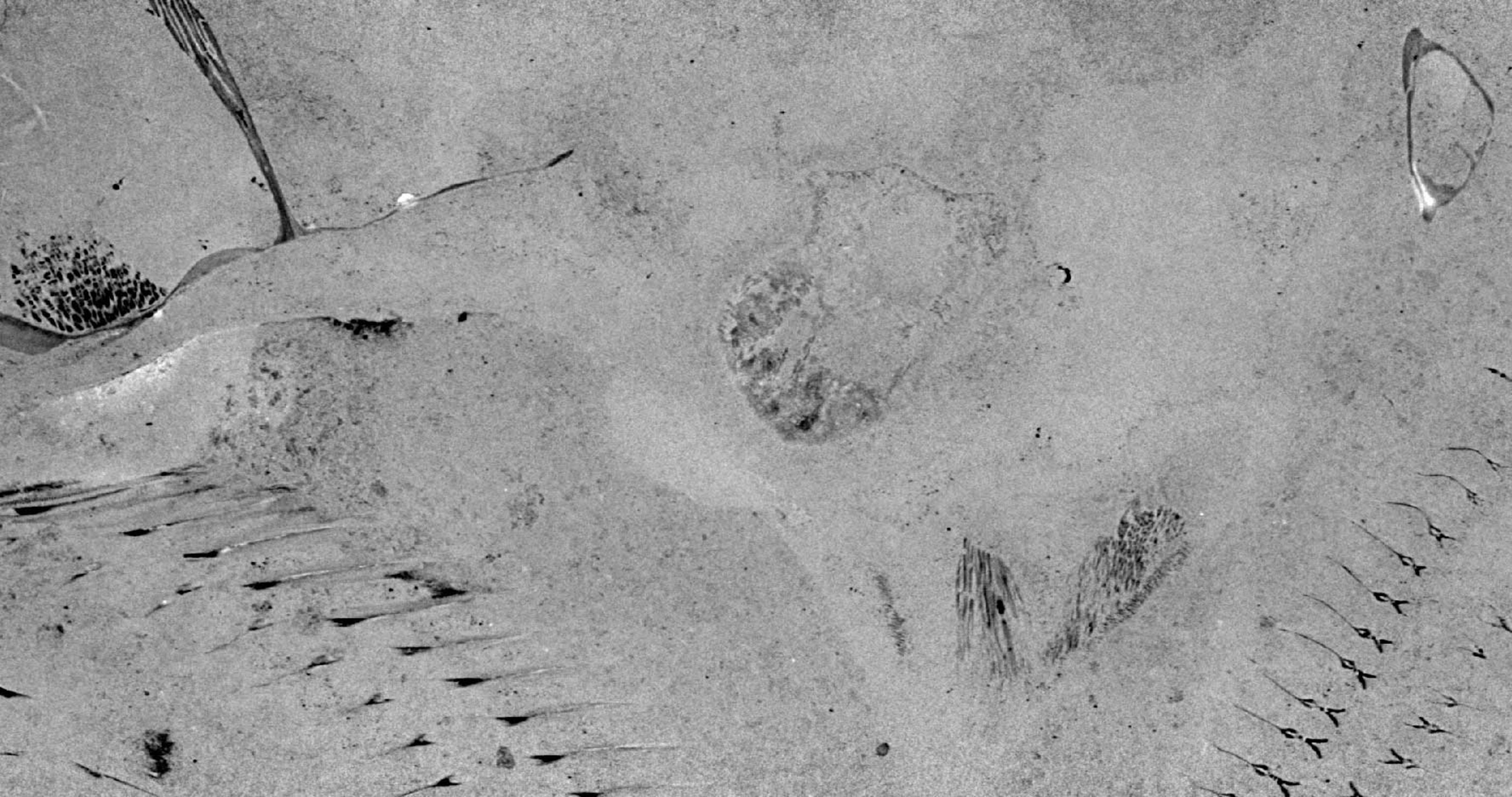
Hearts of Stone: A Fabulous Fossil Find
A groundbreaking study finds calcified hearts in ancient fish at least 113 million years old, the first whole fossil organs of their kind.
Paleontologists are besotted, but the objects of their affection have hearts of stone. In a first, scientists have discovered whole, perfectly preserved fossil hearts, found in fish unearthed in Brazil. The exceptional organs offer solid clues in our understanding of heart evolution.
A team of researchers led by Lara Maldanis and Murilo Carvalho of the Brazilian Biosciences National Laboratory found the hearts in previously collected fossils of Rhacolepis buccalis, a now extinct species of bony fish. The two specimens, which are between 113 and 119 million years old, hail from the Santana formation, a Cretaceous site in northeast Brazil renowned for its exceptionally preserved fossils.
Armed with noninvasive CT scanners, the team created highly detailed models of the two fish, which hint at how fish hearts have changed over time.
Today, the heart is a stunningly diverse, complex organ with different architectures across the animal kingdom. Modern mammals have four-chambered hearts featuring a left and right atrium and a left and right ventricle. But amphibians get by with just three chambers, and in today’s fish, the heart has an atrium and a single pumping ventricle.
To uncover the heart’s evolutionary history, scientists have long examined its anatomy across species and have constructed elaborate family trees based on genetics. But until now, researchers haven’t had the benefit of fossils to know for certain what ancient hearts looked like, since soft tissues such as hearts degrade easily and are notoriously finicky to preserve.
“It’s interesting, since we’ve had to draw inferences from [living] organisms,” says James Hicks of the University of California, Irvine, an expert on vertebrate heart evolution who wasn’t involved with the study. “We’re studying the tips of a tree … we’re not looking at the branches.”
Protective Pulse
The new scans, published in eLife on Tuesday, hint that bony fish went through some intriguing changes in the ways they regulate blood flow through the heart.
Valves in between a heart’s chambers and arteries prevent backwash: They open to let blood pump in and quickly close to stop it from flowing back out. In fish, these valves also protect the delicate gill blood vessels by moderating how much blood pulses into them with each heartbeat.
Some living fish that resemble their ancient ancestors, such as sharks, have multiple rows of dozens of heart valves, stored in a chamber called the conus arteriosus. But more anatomically modern fish have only one valve between the heart and outgoing artery, and they smooth out blood flow with a stretchy compartment called the bulbus arteriosus.
The scans reveal that the heart of R. buccalis also had a prominent heart chamber, but it contained only five internal valves. This intermediate structure strongly suggests that as modern bony fish evolved, their hearts gradually simplified, shedding extra valves while expanding the stretchy regulator.
However, the findings can’t tell the heart’s whole story. The fish specimens represent one species at one point in time, says Hicks, and scientists will need more fossils to pin down exact the evolutionary timing for any changes.
What’s more, the results don’t speak directly to how the hearts of terrestrial vertebrates like humans evolved—a separate question that Hicks hopes will be answered with future fossil finds.
Follow Michael Greshko on Twitter.